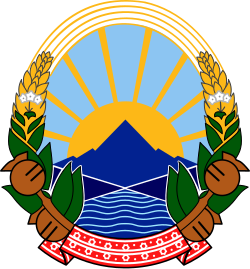| | ||||||||||||||||||||||||||||||||||||||||||||||
| ||||||||||||||||||||||||||||||||||||||||||||||
This lists parties that won seats. See the complete results below.
| ||||||||||||||||||||||||||||||||||||||||||||||
 |
|---|
Parliamentary elections were held in the Socialist Republic of Macedonia on 11 November 1990, with a second round on 25 November. [1] They were the first competitive elections in the country's history. [2] VMRO-DPMNE emerged as the largest party, winning 38 of the 120 seats. [3]
